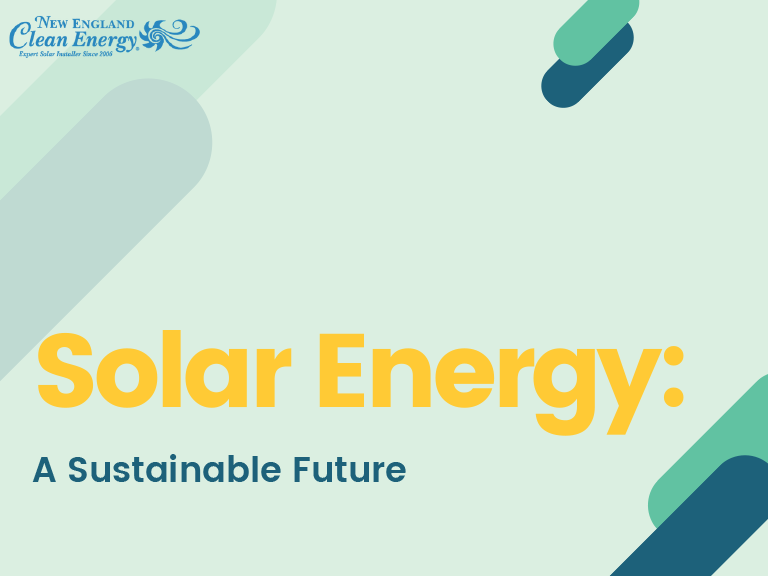How Efficient Are Solar Panels
The History of Energy Sources and Efficiency
Efficient energy sources are constantly evolving, and solar energy is no exception. The pursuit of energy efficiency has taken us from the coal-loaded fiery furnaces of the Industrial Revolution to the silent, sleek solar panels dotting landscapes today. It is a testament to human ingenuity and relentless improvement.
But where does solar energy fall in the spectrum of efficiency, and what does the future hold with the emergence of innovative technologies such as super-materials?
The Age of Steam and Coal:
Our story begins in the smokestack-dominated landscapes of the 1800s, where coal was king. The steam engines powering this era, despite their revolutionary role, had an efficiency of merely 1-2%. It wasn’t until the introduction of the modern steam turbine in the late 19th century that we saw this figure climb to a modest 10%.
The Oil Epoch and the Rise of Electricity:
Entering the 20th century, oil and gas took center stage. Internal combustion engines, while a significant improvement over their steam-driven predecessors, still only convert about 25-30% of the fuel’s energy into useful work.
Natural gas power plants, fare better, with combined cycle stations achieving efficiency levels up to 60% in ideal conditions.
Electricity marked a pivotal transition, with hydroelectric power generation achieving up to 90% efficiency by directly converting kinetic energy to electricity. However, the limited availability of suitable sites globally constrains its widespread adoption.
The Solar Surge:
Solar power has seen a dramatic evolution in efficiency. Early photovoltaic cells in the 1950s could convert only 6% of solar energy into electricity. Today, that number has tripled, with modern solar panels operating at around 18-22% efficiency. Concentrated solar power (CSP) systems push these boundaries further, with field efficiencies expecting to reach around 30% in the coming years.
Boosting Solar Efficiency
The future of solar power may intersect with emerging super materials to enhance efficiency. Scientists are harnessing the potential of materials like perovskites, aiming to surpass current efficiency limits significantly. These crystalline materials offer a cheaper, more efficient alternative to traditional silicon cells, with lab tests indicating potential efficiencies beyond 30%.
Graphene, a single layer of carbon atoms, is another game-changer. Its exceptional conductivity, strength, and transparency make it an ideal candidate for enhancing solar cell efficiency, potentially facilitating a future where electricity is abundant, cheap, and carbon-neutral.
Illuminating the Future:
The efficiency journey from steam engines to solar panels is a testament to our relentless pursuit of a cleaner, more sustainable world. As we stand on the cusp of technological advancements that could skyrocket solar energy’s efficiency, we’re reminded of our shared responsibility to champion cleaner energy sources.

Have Questions about How You Can Make Solar Work For You?
New England Clean Energy is all about making it easy for you to get started and we offer two ways to find out how solar can work for your home or business!
Use our AI-driven estimation tool to get an instant ballpark estimate and see savings with our self-assessment solar cost tool.
Speak with an expert solar consultant to get a free evaluation, with a complete and detailed proposal.
The Regulatory Maze
Solar installation isn’t just about hardware; it’s also about paperwork. Homeowners and businesses often navigate a maze of permits, regulations, and incentives. These regulatory processes, while sometimes cumbersome, are crucial for ensuring safety, compliance with building codes, and qualification for financial incentives that can significantly reduce the cost of solar installation.
Harvesting the Sun
With the panels installed, the magic begins. Each day, these photovoltaic systems capture sunlight, initiating a flow of electrons and generating direct current (DC) electricity. This DC electricity is funneled to an inverter, transforming it into the alternating current (AC) electricity used to power buildings. Now, the property is running on solar energy, reducing its reliance on the grid, and often slashing energy bills in the process.
Interacting with the Grid
But what happens to the excess energy produced, especially on particularly sunny days? This energy doesn’t go to waste. Through net metering, surplus energy can be returned to the grid, often earning the system owner credits. The property remains connected to the grid, drawing energy during the night or on cloudy days, and contributing excess power when production is high.

Solar Energy: A Sustainable Future
In this e-book, we will explore the significant advantages of solar energy, demonstrate how it contributes to sustainability, and share inspiring case studies of successful solar installations. You will hear testimonials from satisfied customers and gain insights from industry experts who are leading the charge towards a greener planet. Join us as we delve into the transformative potential of solar energy and its pivotal role in building a sustainable future for generations to come.
Maintenance and Monitoring
The journey doesn’t end once the panels are up and running. Ongoing monitoring and occasional maintenance are key to ensuring they operate efficiently. Fortunately, many modern systems offer sophisticated monitoring software, allowing owners to observe their system’s performance in real-time.
Embracing the Solar Revolution
Understanding solar energy starts with recognizing its incredible journey from sand to power generation. As we continue to seek sustainable solutions, embracing solar is more than adopting a technology; it’s supporting a cleaner, more resilient energy grid, and a brighter environmental future.
Have Questions about How You Can Benefit From Solar Power Efficiency?
New England Clean Energy is all about making it easy for you to get started and we offer several different ways to find out what types of efficiencies might be available for you!
You can talk to Our Experts at 877-886-8867 or Get a Ballpark Estimate using our AI-driven estimation tool.


